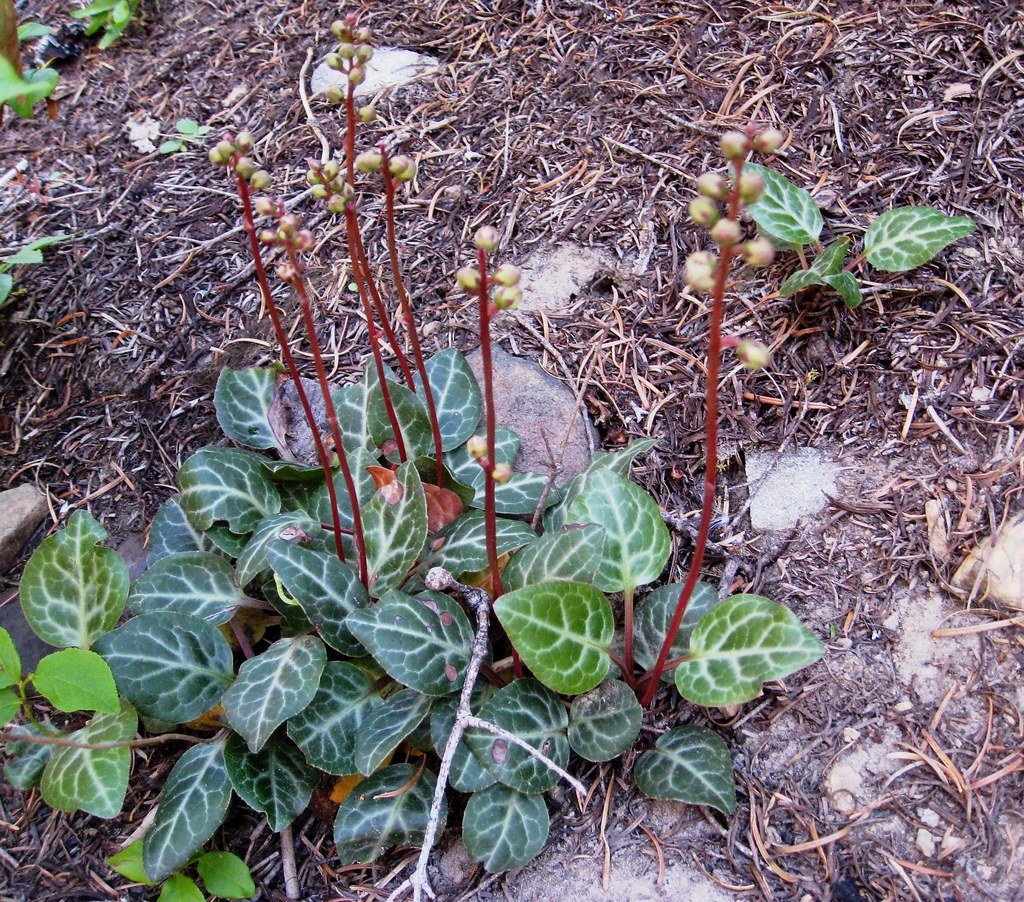Species in the Pyrola picta complex have broadly overlapping ranges along montane corridors from western Canada to Mexico and in some regions can be found in close sympatry. Using geographical and climatic affinity for phylogenetic ancestral state/area estimation under multiple dispersal and vicariance models, Dr. Diana Jolles, Assistant Professor, Department of Biological Sciences and Director of the Plymouth State University Herbarium at Plymouth State University in New Hampshire investigated the environmental conditions under which these species likely evolved. Initial estimates suggest that the P. picta species complex originated in the Sierra Nevada of California and that subsequent speciation was associated with dispersal to distinct geographical locations and ecological settings within the present-day, collective range. The present-day distribution is likely the result of secondary contact caused by climatic shifts and subsequent range expansion. Among other things, this study highlights the importance of specimen annotation for studying species’ geographic range characteristics. Dr. Jolles will speak at the December meeting of the New England Botanical Club on December 7 at 6:45 at Harvard University’s Haller Lecture Hall, 24 Oxford Street in Cambridge. The lecture is free and open to the public.

